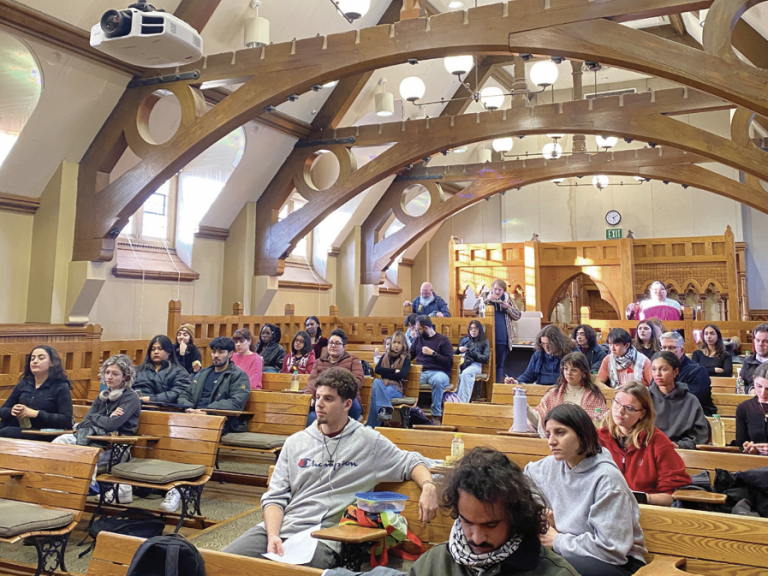Brendan W. Clark ’21
Editor-in-Chief
Trinity College has recently joined a new initiative that seeks to foster greater inclusivity in the college admissions process by crossing socioeconomic boundaries. Trinity, which joined the American Talent Initiative last year, has sought to meet the alliance’s objectives by focusing on access.
The Hartford Courant reported that the initiative, sponsored by Bloomberg Philanthropies, includes 128 participating institutions, with local affiliates including “Trinity, Connecticut College, Wesleyan University and Yale University.” The Courant reported that Trinity administrators have found that the “initiative’s goal aligns with the college’s own commitment to diversifying its student body.” The Tripod spoke with Vice President for Enrollment and Student Success Angel Perez, who echoed this assessment, adding that the partnership “felt natural for us because we were already doing extensive work of cultivating a wider pool of students from across the socio-economic spectrum.”
Participation in the initiative does not mean “quotas,” stressed Perez, who indicated that the college wants “to ensure that each class we enroll is the most talented—regardless of their ability to afford a Trinity education.” Trinity, in an announcement in Aug. 2019, indicated that the Class of 2023 had “17 percent first-generation students,” which was up from 13 percent the year previous year.
The initiative as a whole seeks to increase access to 50,000 students. As the Courant indicated, that objective is meeting with mixed success: “gains in lower-income enrollment among 120 member institutions for the 2018-2019 academic year ‘leveled off.’” Still, as Perez told the Courant, the real meaning of institutions working to reach the objective is to rally “institutions across the country around one common goal, studying what was successful and what was not and adjusting.”
Perez emphasized that he feels the college’s commitment is particularly important, as for many “college is the first time they will engage deeply with students from other socioeconomic backgrounds.” Perez continued, noting that “if students can learn to work together, embrace each other’s differences, and communicate across deep difference—we are setting them up for success after college.”
The initiative will also be a part of the comprehensive campaign, added Perez, who indicated that the college invites “members of our community to invest in helping us continue to attract the best and the brightest to Trinity.”




GetQoralHealth: Throughout the summer and fall, P rez and his team worked to recruit applicants. Then in early winter, in what he calls the read your conscience phase of the admissions process, P rez instructed his staff to consider each of the 6,000 applications without thinking about the college s finances or calculating who could pay and how much. Instead, he told them simply to consider each student as an individual and ask themselves: Does this person belong at Trinity? Can they do the work? Will they add to our community? Do they deserve to be here?